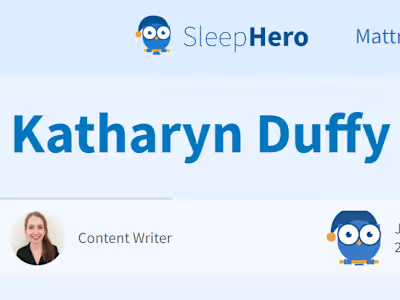OYNB - How to fight the stigma around stopping drinking
How can we fight the stigma around stopping drinking?
Drinking is often seen as part of UK life and culture. We have pubs on every corner, and many activities are centred around drinking. You probably know more people who drink than those who don’t.
Alcohol is so normalised that it seems you must justify why you’re not drinking rather than why you do.
Why is not drinking stigmatised?
The fact is, because drinking is so widely accepted, it can make not drinking seem strange.
When you choose not to drink, it can distance non-drinkers and drinkers. In some cases, this is because non-drinkers don’t want to spend as much time in drinking establishments like pubs and bars. For others, it can be that they do go to the same spaces but feel as though attention is drawn to them because they aren’t drunk or have an obviously non-alcoholic drink like Coke. It is a small thing, but it can bring questions asking why you aren’t drinking. And not everyone is happy or ready to have those discussions.
There is also a presumed connection between sober people and those who have had issues with alcohol. Some people assume that if you choose not to drink, then that is because you have a problem.
This is certainly not always the case. Individuals may have many sorts of motivations for choosing to distance themselves from alcohol.
It is often the ‘problem’ that is stigmatised. Society may disparage stopping drinking because of its assumed connection to certain difficulties. Luckily, this is not always the case, and attitudes in the UK are progressing.
You may want to quit drinking because you are dealing with alcoholism, have been using it as an unhealthy coping mechanism, want to feel healthier, or for hundreds of other reasons. No matter your situation and motivations, no one deserves to be stigmatised for their personal choice.
What’s your relationship with alcohol?
For some people, alcohol is a real problem. It can be addictive and harmful. It can cause some to behave in ways that they never usually would. Alcohol isn’t always a problem. For some, it simply isn’t a positive part of their life.
Whatever the case for you, you are not alone. More and more people are moving towards a reduced or zero-drinking lifestyle.
It’s no wonder many of us are moving towards a more thoughtful approach to alcohol. We know that drinking carries plenty of long and short-term risks. The NHS estimates 358,000 admissions to hospitals between 2018 and 2019, where drinking alcohol was the principal cause.
There is a range of attitudes towards drinking- from casual to dependent drinkers. And anyone who drinks can be at risk of alcohol-related issues. As people become more aware of the risks, they are more frequently choosing to reduce or quit drinking.
You don’t have to put a label on what you’re doing. You could be sober, alcohol-free, teetotal, on a break, or recovering from the last hangover (even if that is for the next few months).
Whatever you decide to do, if you want to give up drinking or just drink less, it doesn’t have to be permanent unless you want it to be. The choice is yours. You can change your mind, and your drinking habits can evolve alongside your life, wants, and needs.
It takes courage to take a different path and not just go with the flow. And when you find the courage, it can be freeing.
Do you need an excuse to stop drinking?
One of the problems many people face when they decide to stop drinking is the why? It can be a dreaded question for some. And if you don’t want to drink alcohol, it is probably a question you will be asked.
The truth is you don’t have to have a reason to stop drinking. However, many people have something that pushes them to make the decision. You might assume that this should be some big revelation. It doesn’t have to be. You might simply want to see if you can give alcohol up. You might be trying to be healthier. You might want to understand if it affects your sleep. There are so many big and small reasons to stop.
You don’t have to have a reason for limiting or quitting drinking. However, it can be helpful to have a clear motivation in your mind.
SMART goals are specific, measurable, attainable, relevant, and time-based. Thinking about why you want to do something can provide you with a specific and relevant aim. This type of goal and reasoning can aid in the translation of your wants and intentions into active health behaviours- like not drinking.
It's important to note that you might not have a strongly defined reason. To start with, it may be more of a curiosity or a preference that encourages you to stop drinking. That is fine, too. Your reasoning doesn’t have to be big or complicated. Maybe you just prefer not to drink, don’t like the taste, or don’t love the feeling. You could use quitting drinking for a limited period or for longer as a way to challenge yourself. Test your limits and see if you can stick to your goals.
If you are interested in changing your relationship with alcohol, why not start with a stop?
Coping mechanisms
Just as there are many reasons and non-reasons for stopping drinking, there are also reasons why we do drink.
You may not know why you drink. You’ve likely never been asked and may never have given it much thought. But understanding why you are drawn to drink can help you stop drinking.
If you drink because of loneliness or confidence, you can think of alternative ways of coping. Is there something else that gives you a boost of confidence? Is there a song that lifts your spirits, a piece of clothing that makes you feel fabulous, or a bit of jewellery that reminds you of all the great things life has to offer?
Whatever it is for you, use it. Have it to hand in situations where you think you might struggle and usually resort to alcohol. It can be your prop and give you the confidence you need to continue on your journey. It is a reminder that you don’t need alcohol to be you. You are fun and can live life to the fullest without drinking.
Telling people about your choice to stop drinking
The idea of having to tell people about your decision to quit drinking can be nerve-wracking. For many people, telling others about your choice is almost sure to lead to the dreaded question of why? Not to mention the many other insensitive remarks that often seem to crop up.
Remember, you don’t have to tell everyone about your plans to stop or reduce your drinking. Studies suggest that pre-emptively telling too many people can hurt our ability to follow our goals through to completion.
So, you shouldn’t feel under pressure to tell everyone or anyone at all. There is no one rule that fits all. You don’t have to stick to one strategy for every situation or every person you meet.
Sometimes, you may decide not to mention that you don’t drink. You can buy non-alcoholic beverages and avoid the topic or give excuses if someone asks questions you're not ready to answer. You don’t have to tell anyone anything.
Other times, you may want to say no. I don’t drink, or I’m taking a break. And you may feel comfortable giving a reason. Perhaps just a short and sweet condensation of your journey. Like, I feel my best when I don’t drink. I don’t enjoy it. Or even I'm plenty of fun without it, thanks.
In other situations, you may feel encouraged and comfortable enough to talk about your relationship with alcohol and your decision to quit in more detail. You never have to share these details. But, you will likely find some people, perhaps people you are particularly close with or someone in a similar position as you, with whom you want to discuss. It can be liberating and validating to find someone who can help you talk things through.
Ultimately, there is no right or wrong when it comes to if and how you should tell people about your resolution to stop drinking. You decide what and who you are at ease telling.
Dealing with potential stigma
Don’t let fear hold you back. There will always be some people who will judge your choices. But there will be even more people who encourage you. When you take those first steps, you will see that you are not alone.
More people than you realise have a complicated relationship with alcohol. And more people than ever before are accepting that. They are making changes to limit or stop drinking so that they can live life as they wish.
With technology and internet advancements, the world is opening up to us. The more we learn, the less we judge. And the easier it is for people who feel alone to find others like them. You aren’t on your own, even if there is no one directly in your life that you can comfortably talk about stopping drinking. There are thousands of groups and support spaces filled with people just like you. These are people with whom you can have honest conversations without fear of being stigmatised or judged.
If you want more support from the people around you and currently feel like they are not helping you as you need, then maybe it’s time for a change of perspective.
Ask them to think of you quitting alcohol as they would if you were quitting smoking. What would they say if you decided to quit smoking? What would their reaction be if you were close to giving up and wanted to smoke again?
Cigarettes and alcohol are both addictive and potentially harmful substances. So why should we treat people quitting either any differently? The simple answer- we shouldn’t.
Asking someone to consider your efforts to stop drinking in the same light as stopping smoking can help to create a more positive and supportive tone. We are conditioned to view smoking as bad and quitting as positive. We know it is difficult but ultimately important for their health and wellbeing. Viewing alcohol through the same lens can allow people to be more sensitive. And it will hopefully help you avoid hearing the absurd comments of, ‘Come on, don’t be boring. Have a drink.’
How stigma around stopping drinking is changing
There’s no quick fix. We can’t snap our fingers and end the ingrained stigma around being alcohol-free. The UK is notorious for its drinking culture, and that is not something that will change overnight.
However, that does not mean that it cannot change. We are already making progress towards having less of a drinking culture. More and more people are quitting or reducing their drinking. As we become more aware of our physical and mental health, our drinking habits change.
The availability and consumption of low and non-alcoholic beverages are increasing across the UK and European Union. This suggests higher levels of acceptance and higher numbers of non-drinkers. With a better selection of non-alcoholic drinks available, people are more able to choose beverages that look like alcohol but contain none. Meaning they can avoid having anyone question their choices before they are ready to talk about them.
Abstaining from alcohol is also becoming more prevalent. There is a growing trend among people, especially young people, to not drink.
There is often a connection between non-drinkers in drinking populations and mental health difficulties. As we de-stigmatize and normalise caring for our mental health, we also increase the acceptance of those who choose not to drink, whatever their reasoning.
Whatever your reasons, only you know what is best for you. You have nothing to feel ashamed of if you do decide it’s time to stop drinking.
Take the leap and take control. You'll see what you can do when you put yourself first.
Sources:
Oettingen, G. & Gollwitzer, P. (2009). Making goal pursuit effective: Expectancy-dependent goal setting and planned goal striving. Psychology Press, 127-146.
Rossow, I. (2021). Normalization of non-drinking and implications for alcohol epidemiology. Addiction. 1– 2.
Avishai, A., Conner, M., Sheeran, P. (2019). Setting Realistic Health Goals: Antecedents and Consequences. Annals of Behavioral Medicine. 53 (12), 1020- 1031
Kokole, D., Llopis, E.J., & Anderson, P. (2021). Non-alcoholic beer in the European Union and UK: Availability and apparent consumption. Drug and Alcohol Review.
National Health Service (2020) Statistics on Alcohol, England 2020. Available at: https://digital.nhs.uk/data-and-information/publications/statistical/statistics-on-alcohol/2020.
Like this project
Posted Mar 29, 2024
An inspirational blog for "One Year No Beer" that discusses the stigma of not drinking and offers practical advice on how to fight this for healthier living.
Likes
0
Views
6







